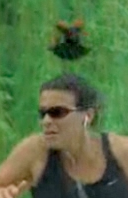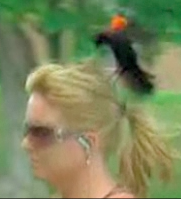
If you train and compete hard in the early part of your life, does that leave less gas in the tank in the latter part of your life?
That’s the interesting question raised by Gina Kolata in her NY Times Health blog this week:
“There are no definitive data on this question, but there are some suggestive findings, said Dr. Vonda Wright, an orthopedic surgeon and exercise researcher at the University of Pittsburgh.
Dr. Wright’s study of senior Olympians — athletes age 50 and older who participated in the National Senior Olympic Games, a track and field event — found what she considers a surprisingly small rate of decline in performance until age 75: just a few percent a year in their times. After that, though, the athletes slowed down considerably.
She asked the athletes when they began participating in sports. In her survey, 95 percent said they were active in sports when they were teenagers and 85 percent said they were active as young adults.
But the survey did not ask what sports they played when they were younger — the same sports or different ones from those they were competing in now — or when they began to compete (it is likely that many of the women, growing up before Title IX, did not compete when they were young). Both factors bear on whether late-blooming athletes have an advantage as they get older.”
Her piece goes on to quote another researcher who suggests that VO2Max rates drop more rapidly in older people who were once athletic compared to those who were sedentary.
There was a maxim around my home when I was growing up (which applied to everything from alcohol, to food, to exercise): “everything in moderation”. My gut tells me it could serve us exercise addicts well.
There’s no arguing that accumulated injuries and psychological fatigue are factors. But does the human body also come with a maximum number of lifetime kilometres? If Anton Krupicka circles the globe three times before he turns 50, can he expect to do it again after the age 50?
As a sports journalist, I’ve been inspired by the stories of so many athletes, from the Olympic backstroker who won gold in Barcelona in 1992, to the 85-year-old triathlete who won his age category gold at the World Masters Championships 1999. That the swimmer never swan again after the Olympics and the triathlete only began his training in his late 50’s surely have affected my view on this.









